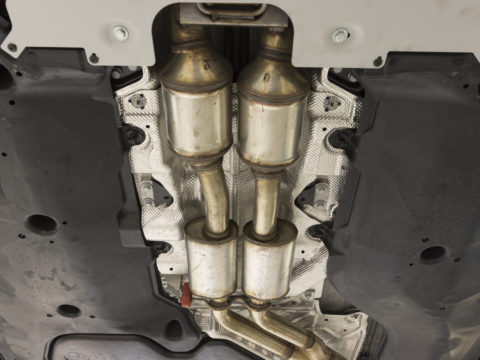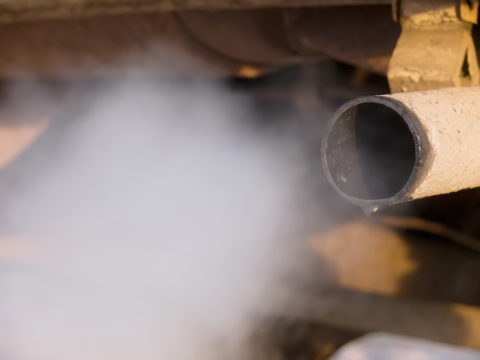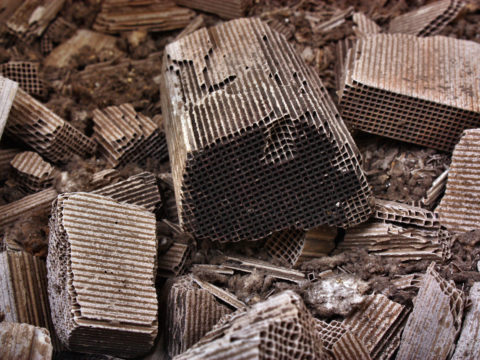Mufflers and resonators are vehicle components used to manage the sounds produced by the exhaust system. You may consider a muffler or resonator delete if you are looking for an unfiltered exhaust sound.
These modifications restore the unfiltered sound of the vehicle. But what is the difference between a muffler delete and a resonator delete?
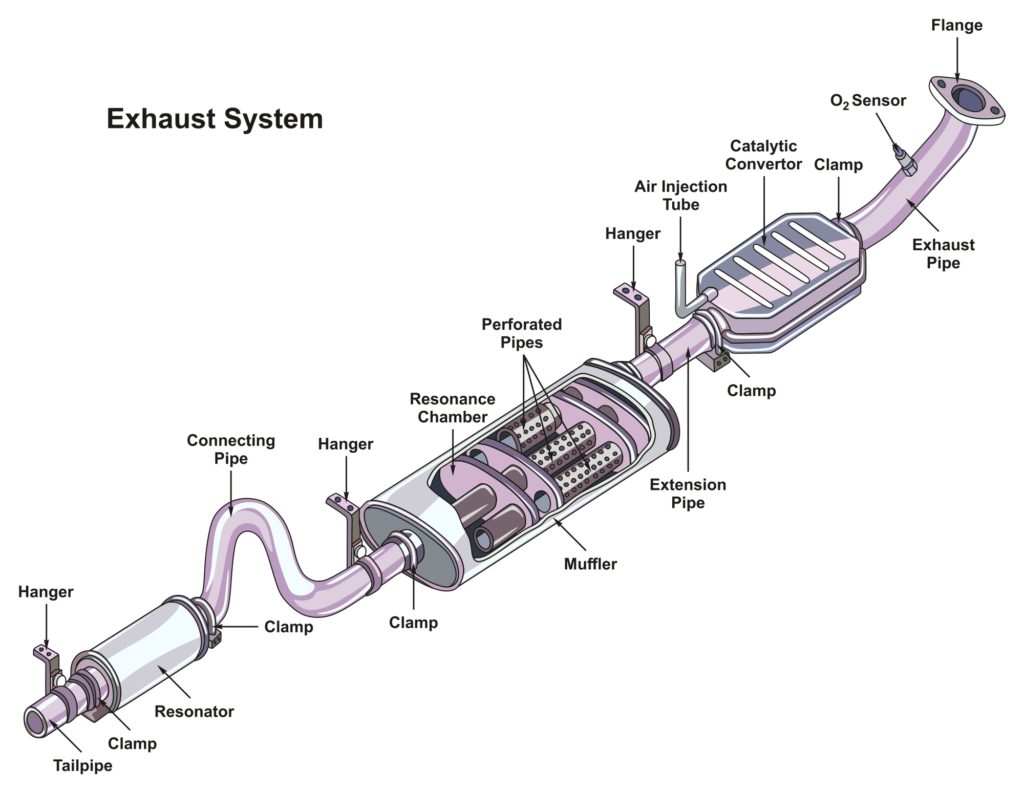
Contents
What Does a Muffler Delete Do?
A muffler is composed of several mechanisms that direct exhaust through a series of chambers, giving the gas time and space to expand, thereby reducing the volume produced by the exhaust.
A muffler delete involves three steps. Remove the muffler from the exhaust system and replace it with a muffler delete pipe, then weld an exhaust tip to the end of the system.
Depending on how efficiently the muffler manages the exhaust and noise from the engine, a muffler delete can also result in marginal performance improvements.
What Does a Resonator Do?
Resonators change engine sounds, priming them to be more efficiently processed by the muffler. Sounds from the engine enter the resonator first, where they are contained in a small space to bounce around before moving to the muffler. The muffler is the part that emits the final sound, along with the exhaust.
Does a Muffler and Resonator Delete Add Horsepower?
A muffler or resonator delete cannot increase horsepower but can unlock the engine’s existing latent capacity.
These noise reduction devices constrain the rate at which the vehicle expels exhaust, which prevents the engine from maximizing the rate of air intake. Thus, deleting either the muffler or resonator will allow your engine to expel exhaust more quickly, promoting an increase in air intake and combustion rate.
Therefore, deleting noise reduction devices can help to maximize your vehicle’s horsepower potential.
However, it is essential to note that some newer models of cars are unlikely to see significant gains in performance from a muffler or resonator delete because modern exhaust systems are designed to be more efficient.
Main Differences Between Muffler Delete and Resonator Delete
There are four main differences between muffler delete and resonator delete that you will need to know. Here we will discuss each in further detail.
Volume
Mufflers dampen overall volume across the full range of noises the engine produces, while resonators limit the kinds of sounds. As a result, a muffler delete will make the vehicle louder, while a resonator delete will not.
Tone
A resonator delete results in an increased range of noises, notably unlocking a droning sound comparable to a trumpet. This droning sound, along with other high-pitched noises, will likely be more prevalent at certain speeds. However, the technical details will depend on your vehicle’s specific make and model.
Weight
Mufflers are significantly heavier than resonators. However, you cannot legally remove the muffler without replacing it with an additional part. You must install a muffler delete pipe or similar alternative in the place of the muffler to comply with federal law.
The weight of these added parts will reduce the net weight removed from the vehicle. If reducing the weight of a car is your primary objective, then a resonator delete is likely a better option because it does not require the installation of a replacement part.
Legality
Depending on the laws and regulations in your state, muffler deletes or exhaust modification may be illegal. However, a resonator delete is sometimes legal in places a muffler delete is not. Check your local laws, as well as the regulations of anywhere you plan on bringing the vehicle.
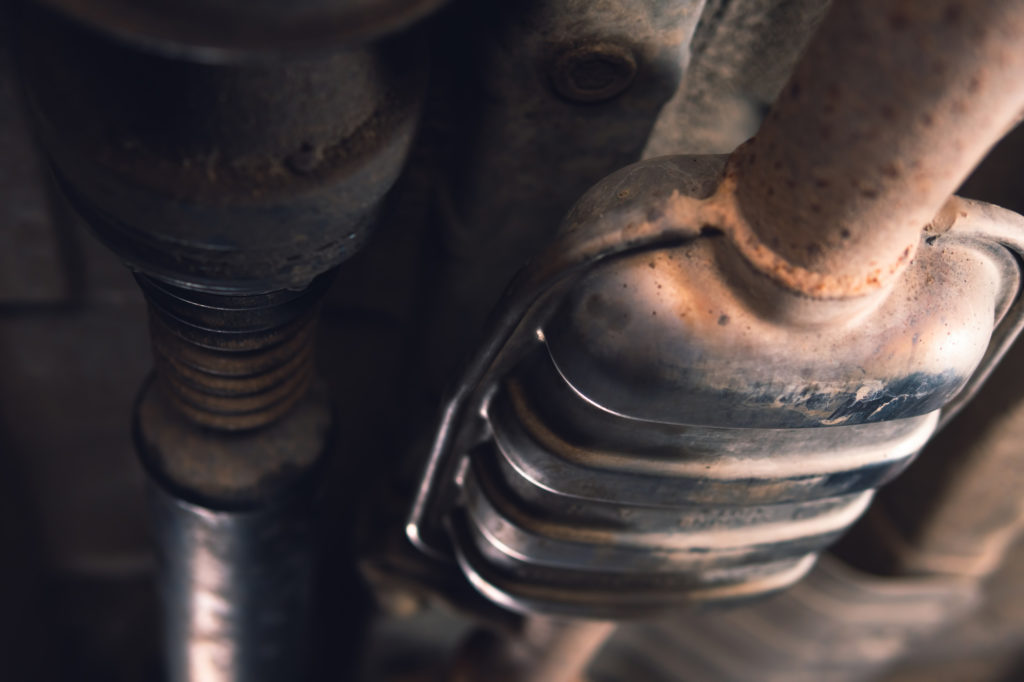
Muffler Delete Pros and Cons
If you are considering a muffler delete, here are a few pros and cons that you should be aware of before choosing this modification.
Muffler Delete Pros
A muffler delete will give your vehicle a louder and more authentic sound. Some motorists prefer the unmuffled sound of the engine, and some are interested in listening to how the car runs to inform their driving and maintenance.
The two primary benefits of removing the muffler are reductions in the car’s total weight and circumvention of inefficiencies that arise from channeling exhaust through the muffler. Performance gains vary significantly, but weight and engine efficiency are significant benefits no matter what vehicle you drive.
Muffler Delete Cons
Deleting the muffler will increase the volume of the exhaust. While this will not impact the performance or longevity of the vehicle, other considerations may make this outcome undesirable.
Namely, laws governing the emissions of your car are a crucial consideration. Your car will be louder, attracting local law enforcement or displeasing your neighbors. In addition, the volume of your modified car will be even louder during highway driving.
Resonator Delete Pros and Cons
If a muffler delete isn’t your choice and you are more interested in a resonator delete, you should consider these pros and cons.
Resonator Delete Pros
The primary reason for most resonator deletes is to make the engine produce a deeper sound. If you only perform a resonator delete and keep the muffler, these new sounds will occur at the same volume as the sounds produced by the vehicle before the resonator delete.
A resonator delete reduces the vehicle’s weight, offering improved fuel efficiency. If the resonator is operating inefficiently, removal could also improve horsepower to a small degree.
Resonator Delete Cons
A resonator delete will increase the droning sound produced by your vehicle as you accelerate. It will also unlock a variety of other noises which are typically filtered out. Depending on the make and model of your car, a resonator delete can also negatively impact performance.
Modern car manufacturers have designed exhaust systems and engines to work together efficiently, and deleting the resonator can undermine those built-in optimizations.
Which Is Louder – Muffler Delete or Resonator Delete?
Resonators do not impact the volume of the sounds, merely the kinds of sounds that the exhaust system produces. Mufflers reduce the volume level of the exhaust any time you turn on your vehicle.
Which Is Better – Muffler Delete or Resonator Delete?
The appropriate exhaust modification depends on the vehicle, local laws, and the driver’s goals. Considering that performance improvements offered by muffler and resonator deletes are likely to be marginal for some models, it makes sense to prioritize the preferred engine sound you hope to achieve.
A muffler delete is the best way to increase your vehicle’s volume. A resonator delete alone will not offer increased volume but will change the sound of your car. If you’re interested in modifying your exhaust, a muffler and resonator delete may be the way to go.

